Eczema is a chronic, non-contagious skin condition that occurs as a result of inflammation. It’s characterized by severe itching and scaly rashes.
Eczema is more common in Black Americans, especially children. They may experience more itchiness and skin inflammation that require higher doses of medications to get relief.
Black and Hispanic children tend to develop more severe cases of eczema compared to white children. They are also more likely than white children to miss school due to eczema.
Eczema symptoms often appear on the following parts of the body:
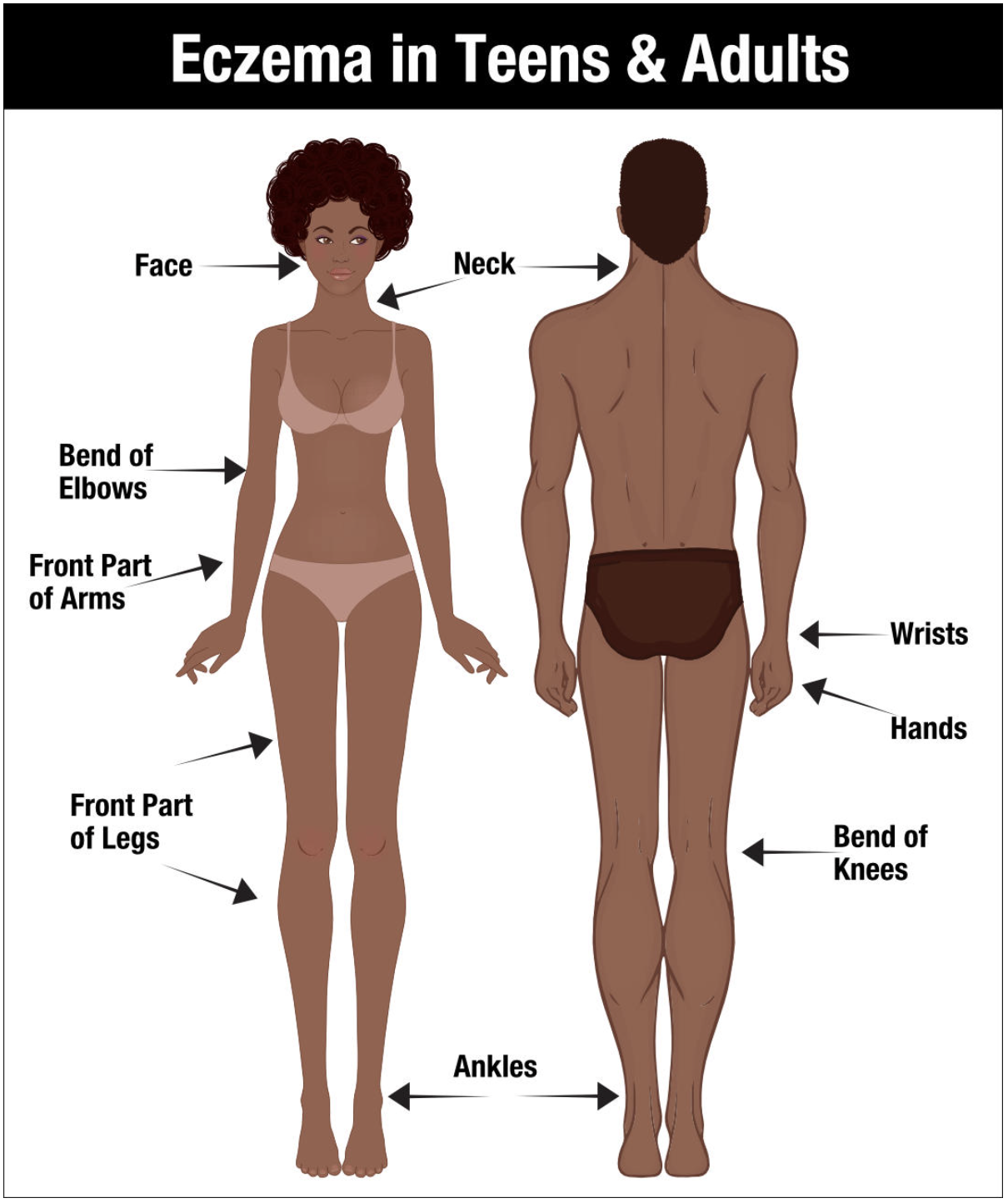
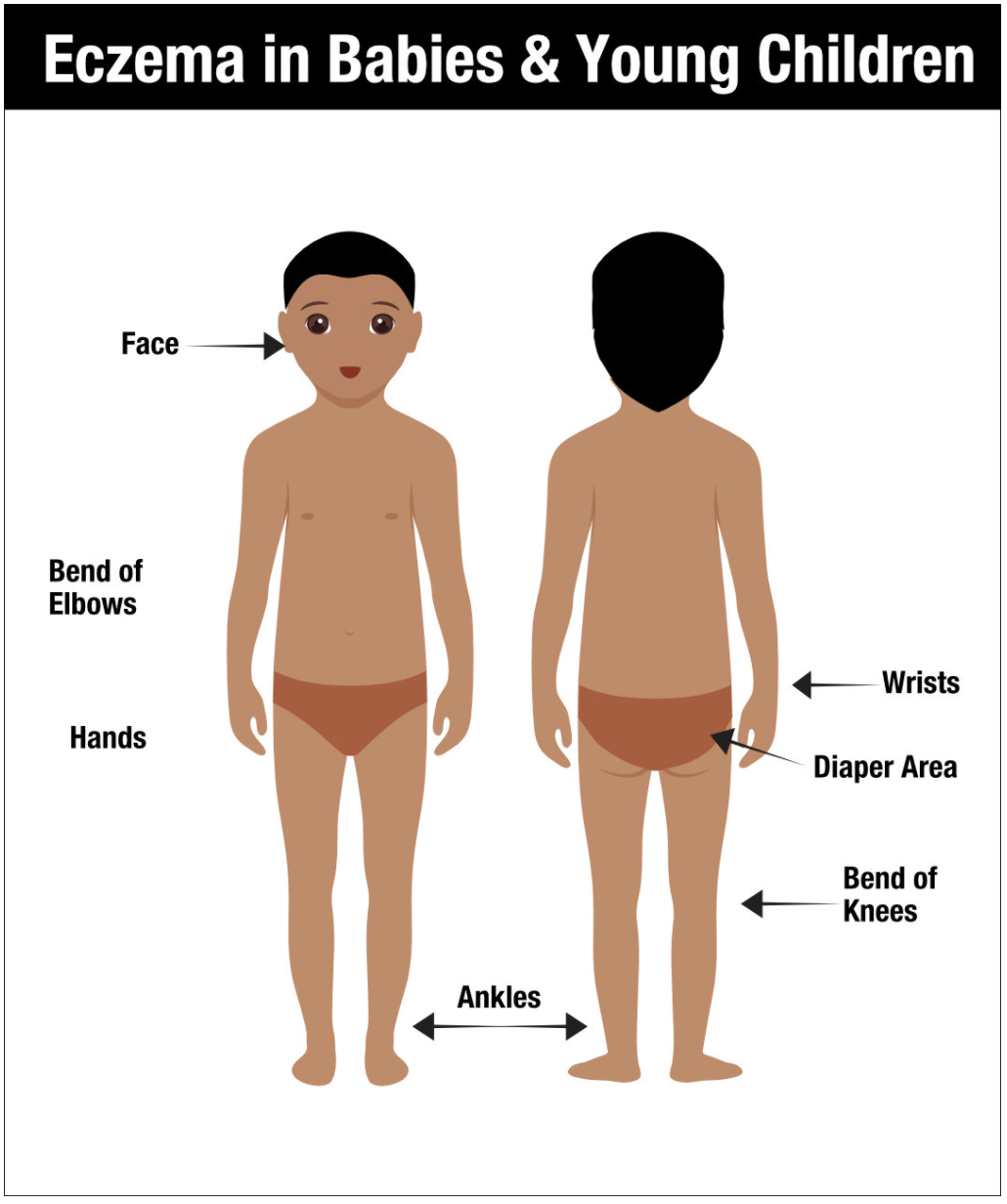 |
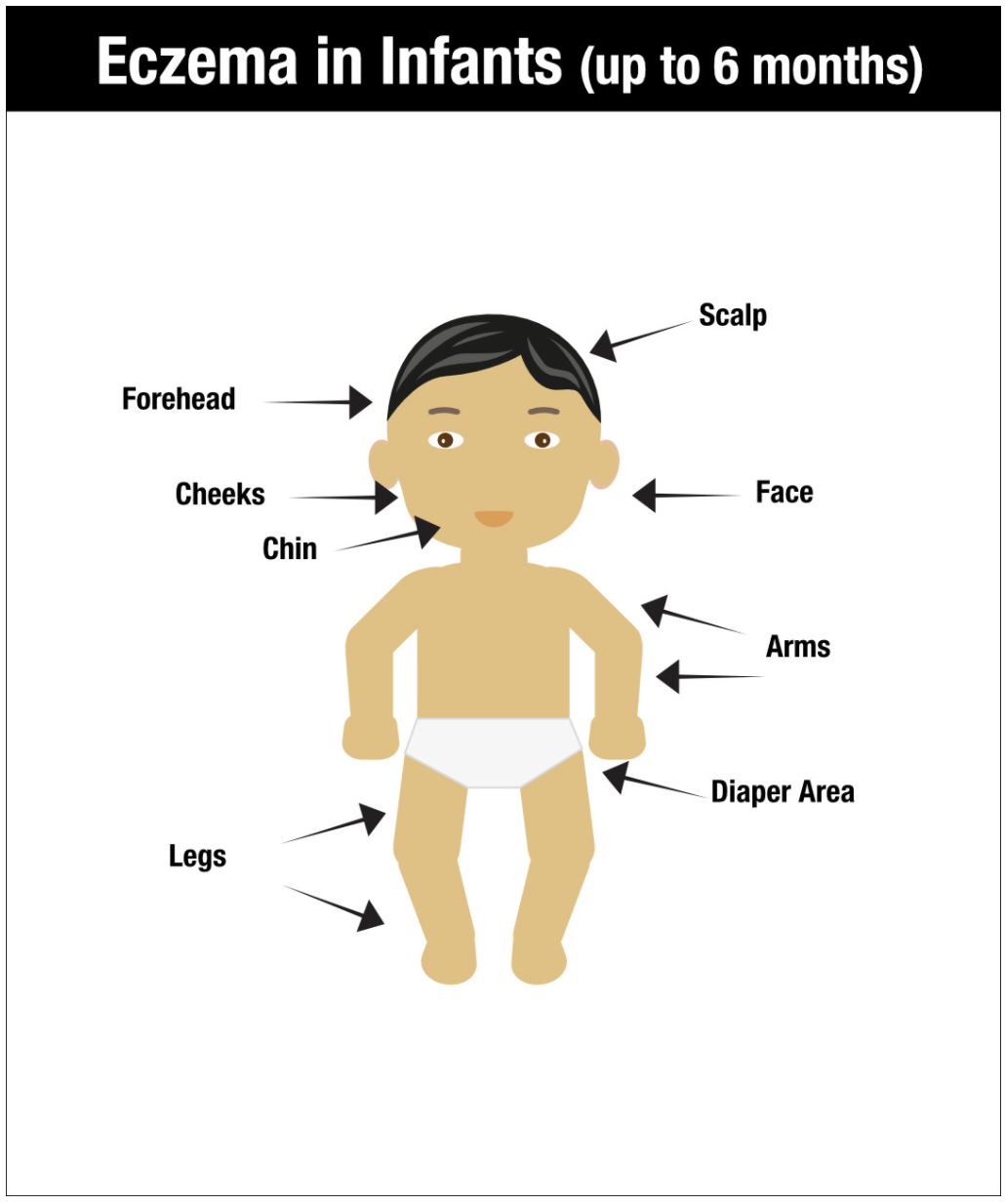 |
Eczema may also appear as dark circles under the eyes. This is not due to tiredness or a lack of sleep. In people of color, it could be eczema-related inflammation causing hyperpigmentation (darkening of the skin).
Atopic dermatitis is the most common form of eczema. Symptoms include:
- Itchy and red patches in lighter skin, itchy and dark brown, purple or gray patches on darker skin
- dry and scaly skin
- thickened skin
- open, oozing, crusty sores, which could lead to infection
- “ashy” skin on skin of color
What are common triggers of eczema?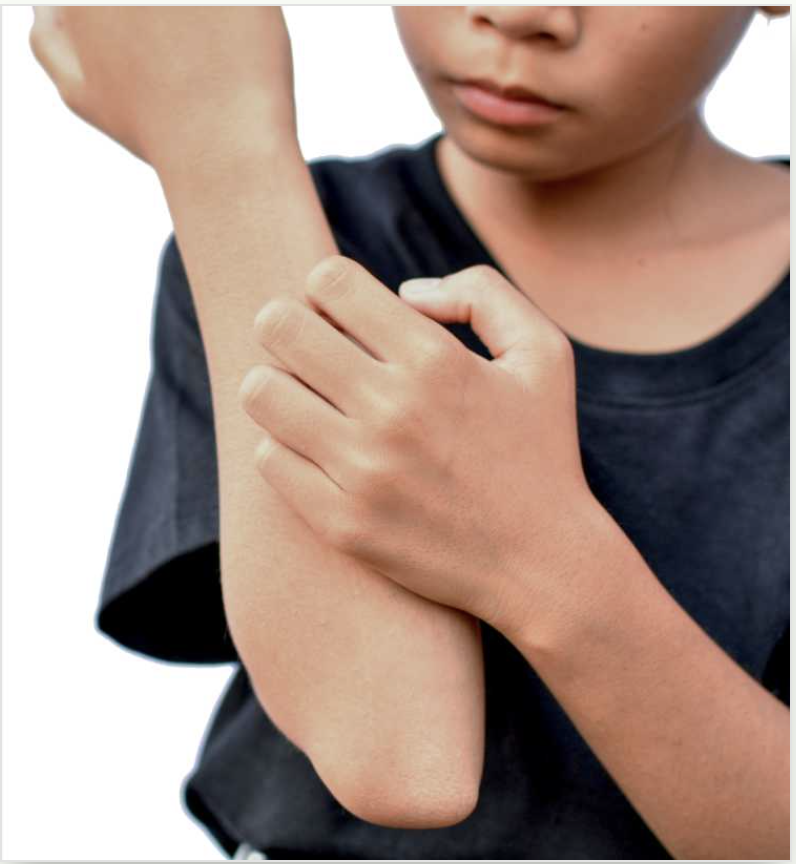
- Skin irritants such as soaps, shampoos, detergents or fragrances
- Heavy or tight clothing
- Chemicals in skin products such as cosmetics
- Jewelry that contains nickel
- Environmental allergies such as pollen and mold
- Food allergens
- Furry pet dander, saliva or urine
- Dust mites
- Hot and humid temperatures
- Cold air in winter, which can dry out the skin
- Viral and bacterial infections
- Antibacterial ointments such as neomycin and bacitracin
- Tobacco smoke
- Stress
The Itch-Scratch Cycle
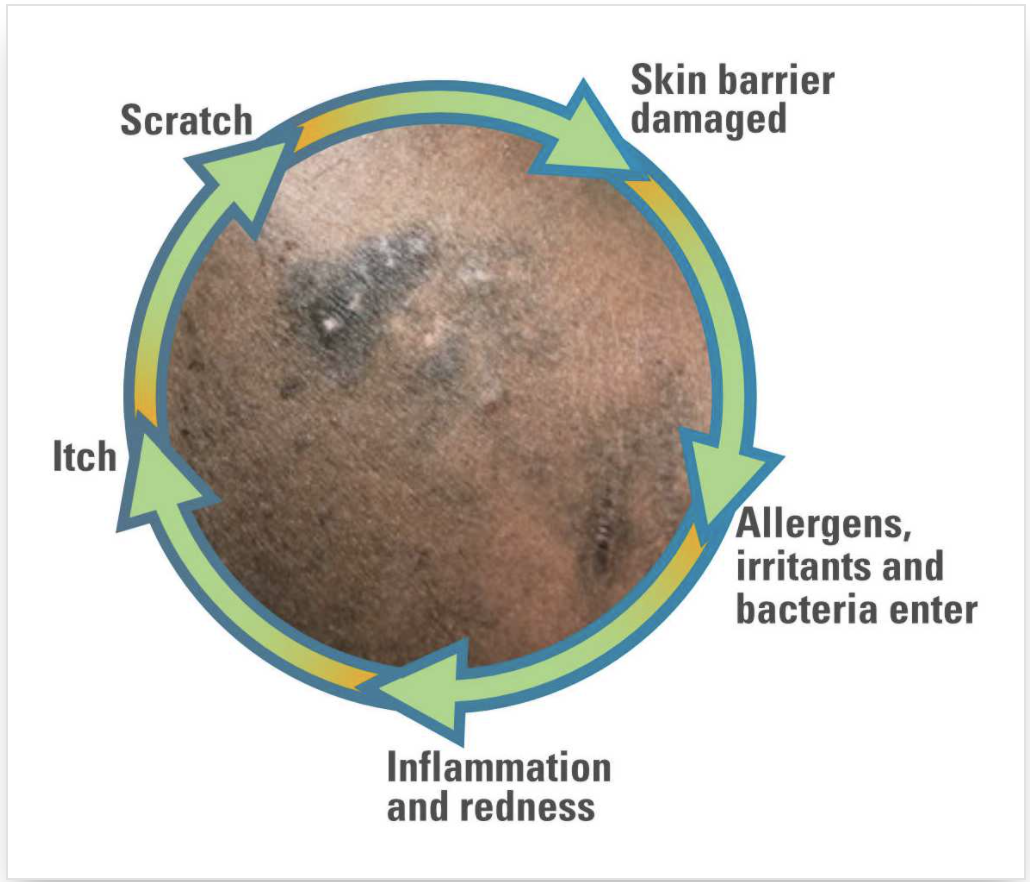 When eczema itches, patients are going to have an urge to scratch. Doctors now know that when patients scratch skin affected by eczema, it prolongs the itch and worsens symptoms, leading to a seemingly unending itch-scratch cycle.
When eczema itches, patients are going to have an urge to scratch. Doctors now know that when patients scratch skin affected by eczema, it prolongs the itch and worsens symptoms, leading to a seemingly unending itch-scratch cycle.
Here’s how it happens: when the patient scratches, it breaks down the outer layer of the skin, allowing allergens, irritants and bacteria to enter. The immune system responds by sending signals to the surface of the skin, causing more inflammation and redness — and more itching. This also increases the risk of a skin infection.
When skin is injured by this constant scratching, melanin is released. This could result in hyperpigmentation, especially in people with darker skin tones.
This itch-scratch cycle can affect quality of life, increase stress and impact sleep, especially in children.
It is vital that physicians and patients recognize eczema symptoms in skin of color and understand how social and economic factors can impact management and treatment. 70% of people with eczema report a family history of the condition
© 2021 Allergy and Asthma Network

Last updated : 9/15/2021